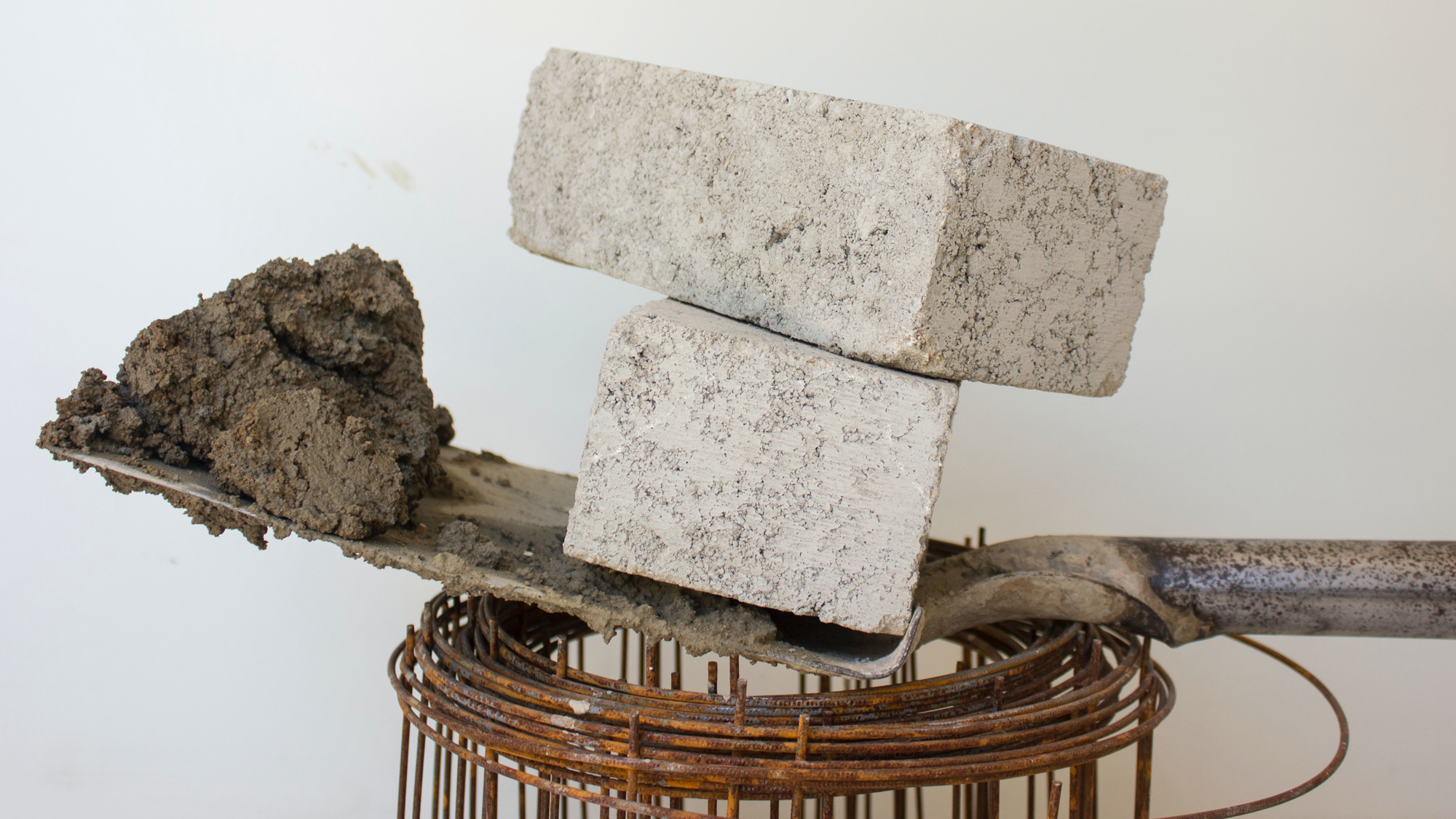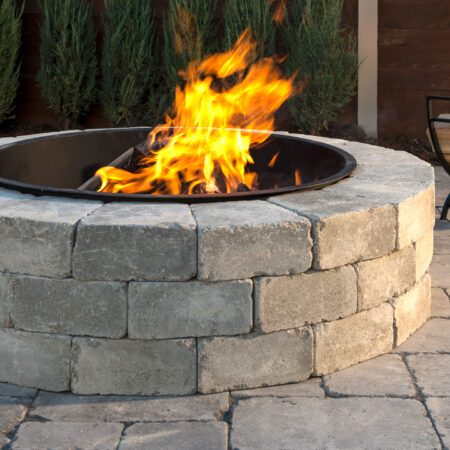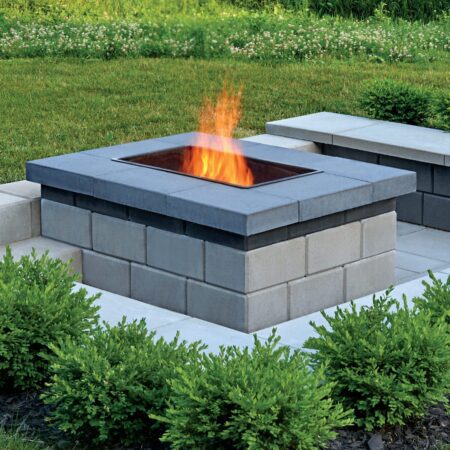Homeowners looking to increase the value of their property or simply looking for a fun DIY project may be surprised to learn that there are several different types of commonly used mortar on the market, each with its own unique purpose. For example, if your projects include laying a brick wall or building a natural stone walkway, you’ll need two different types of mortar. When working on masonry details like Belgium block edging or driveways, choosing the right mortar ensures lasting strength and aesthetic consistency.
In the guide below, we’re going to take a look at the following types of commonly used mortar, their compositions, and their uses:
- Type N Mortar
- Type S Mortar
- Type M Mortar
- Type O Mortar
- Type K Mortar
Type N Mortar
Type N mortar, often referred to as a general-purpose mix, is one of the most commonly used mortar types for home projects, including laying brick, block, or stone load-bearing walls. It can be used for interior and exterior projects and can be exposed to the natural elements. A speciality mortar called refractory mortar is formulated for high-heat applications, making it perfect for designing a fire pit or outdoor wood-fired pizza oven.
The mix itself is composed of one part Portland cement, one part lime, and six parts sand. Though Type N is versatile, it must be used above grade (above ground), meaning you’ll have to use a separate type of mortar for the foundation of your project.
Type S Mortar
In contrast, Type S mortar is typically used at or below grade for home improvement projects such as installing a cobblestone walkway or installing cobblestone edging on the side of your driveway. It also works notably well for installing a veneer.
The important difference when it comes to this mortar type is its ability to withstand the pressure of earth, foot traffic, or above-ground structures. To stabilize clay soil in driveway installations, our friends at Techo-Bloc recommend using Type S to reduce the pliability of the soil, but retain its flexibility and increase its load-bearing capacity. Its composition consists of two parts Portland cement, one part hydrated lime, and nine parts sand.
Type M Mortar
Type M mortar is typically used for below-grade or structural projects and has the highest tolerance to weight out of any mortar type. It is often used in foundations, retaining walls, and driveways. Another unique aspect of Type M mortar is that while it’s not a great adhesive, it does provide a gentle touch to natural stone and marble. Type M mortar is made from three parts Portland cement, one part lime, and twelve parts sand.
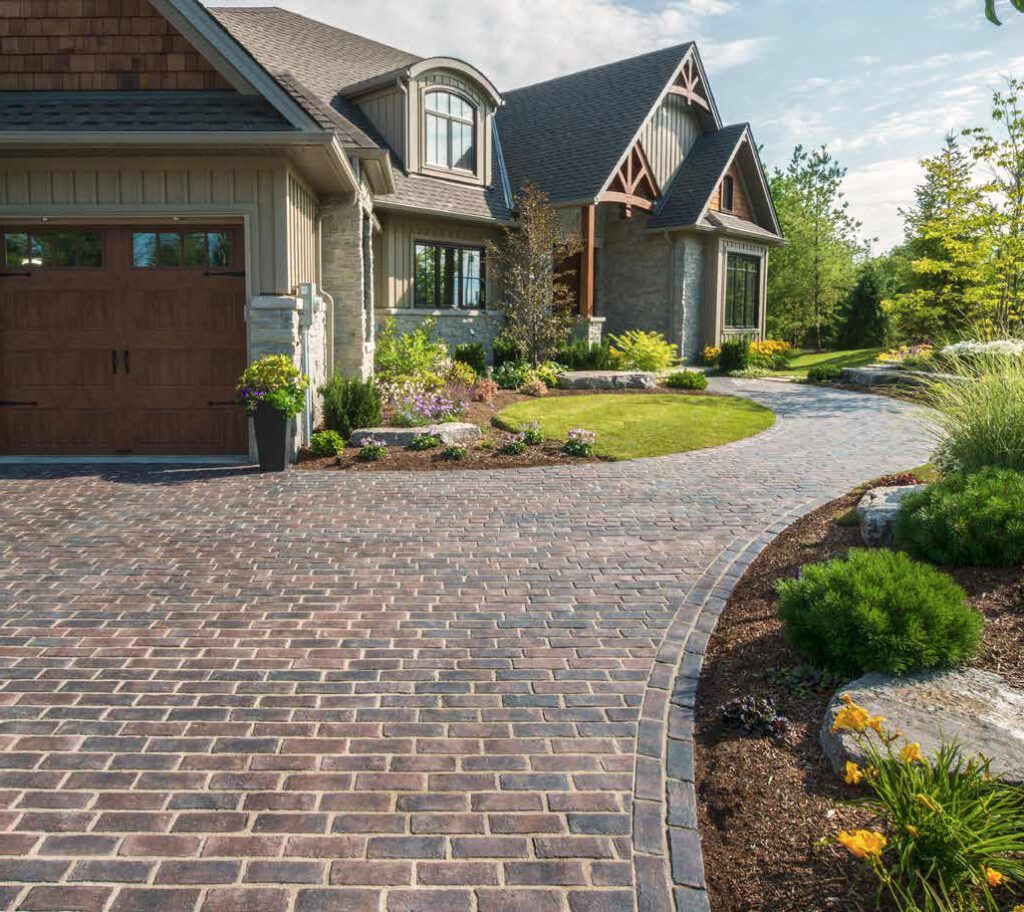
Type O Mortar
Because it doesn’t do well outside or with extreme heat, needing to use Type O mortar is fairly rare. It can only be used in above-grade settings, and can never be used to support heavy projects such as load-bearing walls or driveways. However, you may find that it works well with interior uses such as non-load-bearing walls, faux mantles (but not fire pits), or for decorative techniques such as tuckpointing, the process of laying existing mortar over the old mortar to make the bricks stand out..
Type K Mortar
Another rare type of mortar, Type K, is rarely used by masons or even in a home project setting. However, it does serve one unique purpose: preserving historic structures and sites. The porous quality of this mix makes it a gentle composition for such applications.
Commonly Asked Questions About Mortar Types
If you’re still finding yourself in the dark about masonry mortar types, see the following commonly asked questions for more guidance:
Which is better — Type S or Type N Mortar?
It depends on the project. While Type N mortar is generally used in almost any application type, it does fall short in some situations, including supporting extra-heavy loads such as foundations, load-bearing walls, or underground applications. For these purposes, we recommend going with Type S mortar.
Can I change the color of my mortar to match my brick or stone?
While many different colors of mortar exist, the most common are white, buff, red, gray, or black. Mortar can be custom-dyed before installation to get a specific look or to match an existing project.
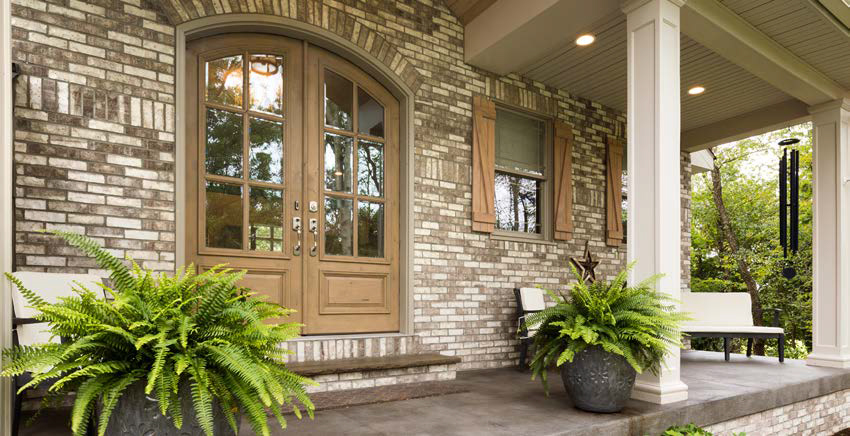
If you’ve already completed your project, and you aren’t happy with the color of your mortar, there are two methods you can use to change your mortar color. The first method is called tuckpointing, which simply means using new mortar to cover the existing mortar.
Another way you can change the look of your mortar is by using an acid wash. This will “brighten” the color of your mortar. It’s important to note that the mortar that you use on your project this year will darken and fade over several years. Either of these two methods can be used to keep old mortar looking fresh.
What type of mortar should be used for brick?
While the most common mortar used in bricklaying is Type N mortar, you can use a few different types depending on:
- Where the brick is being laid
- How heavy a load will the bricks support
- If the brick will be indoors or outdoors
- If the bricks are exposed to heat
Can you use mortar for permeable installs?
The goal with permeable walkways or patios is to allow water to easily filter down from the surface, minimizing run-off and reducing pressure on storm drains. Mortar would block that filtering. So, for installing permeable pavers or even non-permeable pavers on a permeable base, we recommend joint sand, either coarse masonry sand or polymeric sand, depending on the project.
Is thinset another type of mortar?
Thinset is commonly referred to as a mortar, though it’s more appropriately thought of as an adhesive (a thinner, modified version of a mortar). Other names for thinset include thinset mortar, dryset mortar, thinset cement, and drybond mortar. Homeowners installing tiles or backsplashes will commonly use thinset. Check out our more in-depth how-to guide on installing backsplashes for more info on tools and supplies.
Common Mortar Brands
We carry many of the following mortar mix and masonry supply brands, including Quikrete, Sakrete, Amerimix, and Lehigh, along with everything you need to make your mortar on-site.
If you’re located on Long Island and you’re in the market for any of these masonry mortar products for your next project, stop by Astro Masonry, located in Deer Park, NY, or request an online quote for the tools or supplies needed through our online store.

